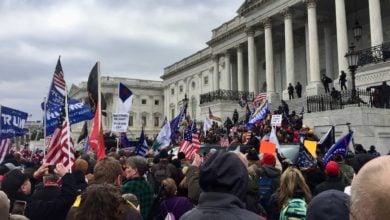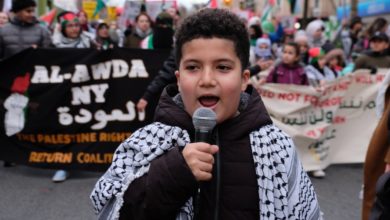Update: Columbia Graduate Workers ended their week-long strike on schedule. Union representatives said they would keep organizing, and strike again, as needed.
April 30 marks a week since graduate workers at New York City’s Columbia University began their strike in response to Columbia’s refusal to bargain with their union, Graduate Workers of Columbia-United Auto Workers Local 2110.
Columbia has refused to negotiate with the union for over a year, beginning in late 2016 when 72 percent of participating graduate workers voted to unionize. The university responded to the vote by filing objections with the National Labor Relations Board. After the NLRB ruled in favor of the GWC late last year, Columbia provost John Coatsworth announced this past January that the university would still refuse to negotiate with the union, claiming that graduate workers are not employees of the university and should not be able to unionize.
Columbia’s refusal to bargain with the now-certified graduate workers’ union is a blatant violation of the labor laws that workers won through struggle.
The strike, authorized by a vote of 93 percent in favor, is scheduled to end April 30, the last day of classes at Columbia. As final exams approach and term papers are turned in, graduate workers are withholding their labor to make clear to the administration their status as workers necessary to the functioning of the university.
Some union members have started a petition to extend the strike indefinitely to increase pressure on the university to respect their right to a union. Jared Sacks, a graduate student and worker in the Middle Eastern South Asian and African Studies program, is one of those workers petitioning to extend the strike. He told Liberation News:
“The strike has been hugely successful so far, in terms of turnout and in terms of the support we’ve received from undergraduate students, faculty, and other Columbia workers. The end of the semester is a strategic time to strike: our students will be taking their final exams and writing final papers. Without graduate workers, these cannot be graded and seniors cannot graduate unless the university chooses to fudge its numbers. This is why we propose extending the strike until the end of the semester.”
This strike comes on the 50th anniversary of the April 1968 demonstrations on Columbia’s campus protesting Columbia’s involvement in the Vietnam War through its membership in the Institute for Defense Analyses, a weapons research think tank affiliated with the Department of Defense, and the university’s plans to build a racially segregated gym in nearby Morningside Park. The protests and occupations of university buildings was eventually ended by the violent removal of the student activists by the New York Police Department at the request of university officials. Neither the police not the school’s administration could prevent the student occupation from becoming a clarion call for struggle around the country.
Today, the militant example of the radical students of 1968 lives on in the picket lines of graduate workers at Columbia graduate workers’ struggle for the recognition of their legally and democratically won union.





